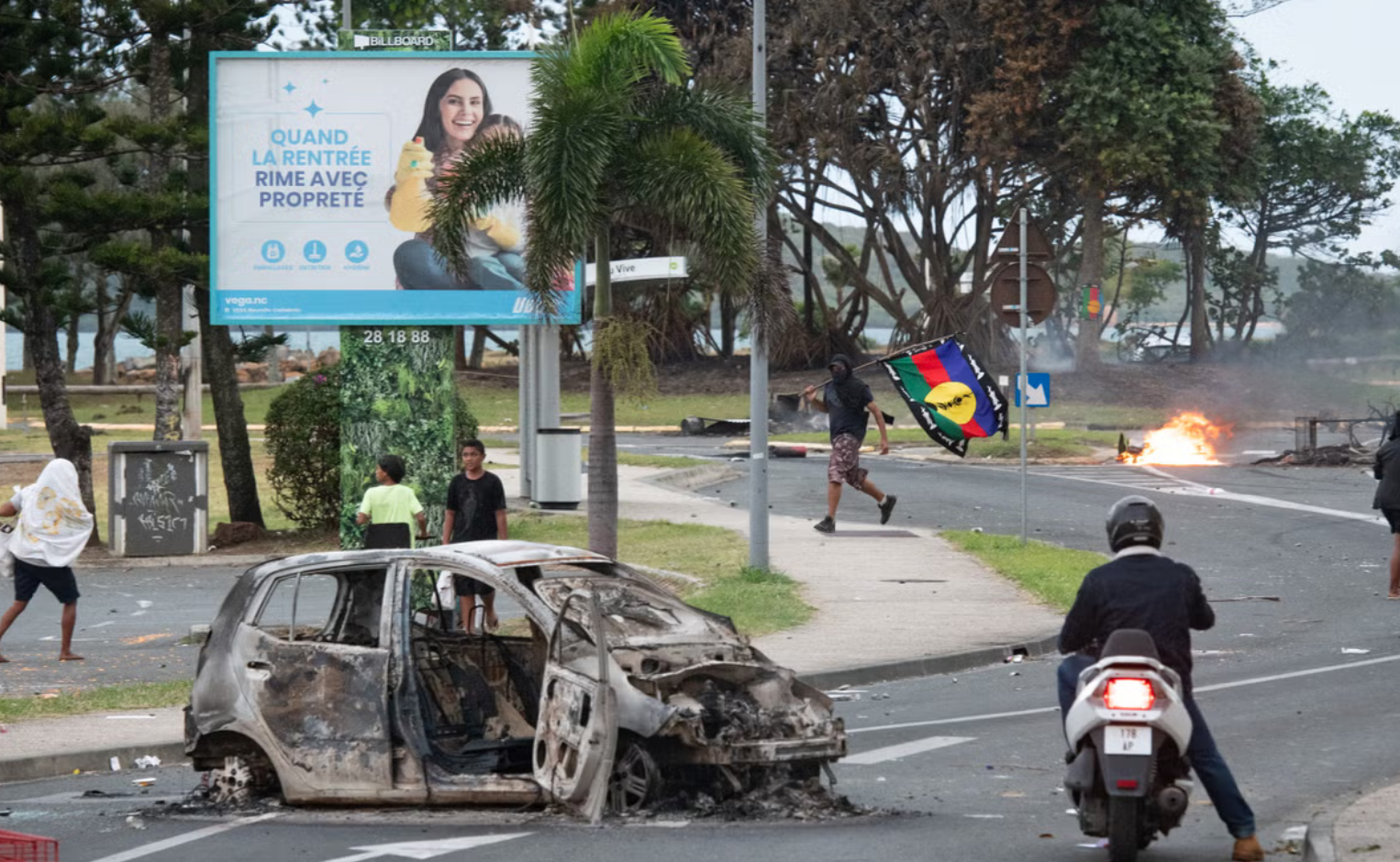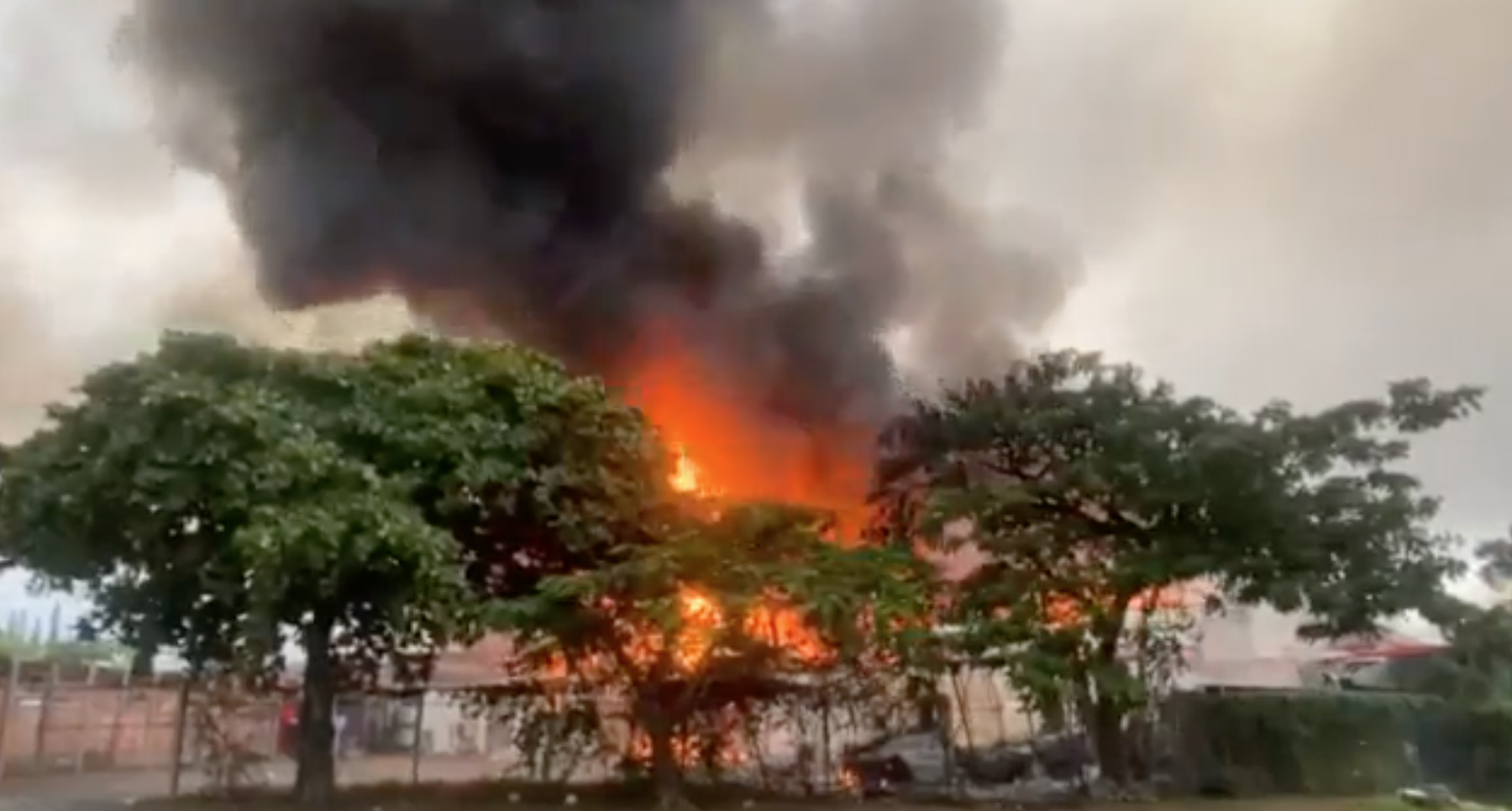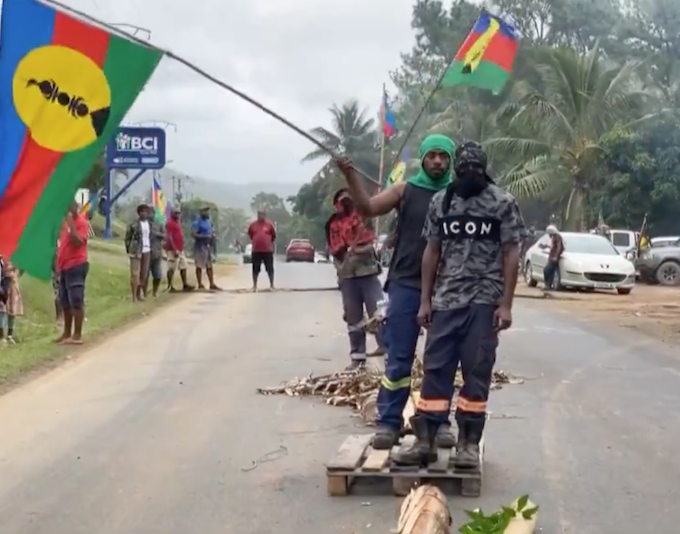
Monday night saw the most significant anti-colonial uprising erupt in Kanaky since the 1980s. The island, which was named “New Caledonia” by the British colonizer James Cook, has been occupied by France since the 19th century.
The indigenous Kanak uprising began in opposition to French president Emmanuel Macron’s attempt to stifle anti-colonial developments by imposing a constitutional change to allow voters from mainland France to vote in a referendum that could determine Kanaky’s independence from France.
The uprising occurred the day before France’s National Assembly was to vote on the issue, and just after Macron had proposed new talks in Paris.
Burning of buildings, roadblocks
It included the burning of buildings and businesses, roadblocks preventing movement in and out of the capital, and the closure of airports and ports in some of the islands. Police were targeted with gunfire and stoning, resulting in 35 injured police.
As of yesterday, Tuesday May 14, a curfew had been imposed. France, which already had 700 colonial occupation police active in New Caledonia, has sent reinforcements to attempt to maintain its control over the colonized Kanak people in revolt.
The Mayor of Noumea, Sonia Lagarde, described the situation as “extremely well organised guerrilla warfare” involving “well-trained young people” and suggested “a sort of civil war” was approaching.
For indigenous Kanaks, Macron’s positioning is unconscionable.
Anti-colonial organisations have all strongly opposed Macron’s imposing constitutional change to widen voter eligibility unilaterally from Paris.

In the face of Macron’s attempt to maintain a colonial stranglehold on Kanaky’s natural resources (in particular nickel mining), the dignified Kanak people have renewed the struggle for their freedom from French colonization.
